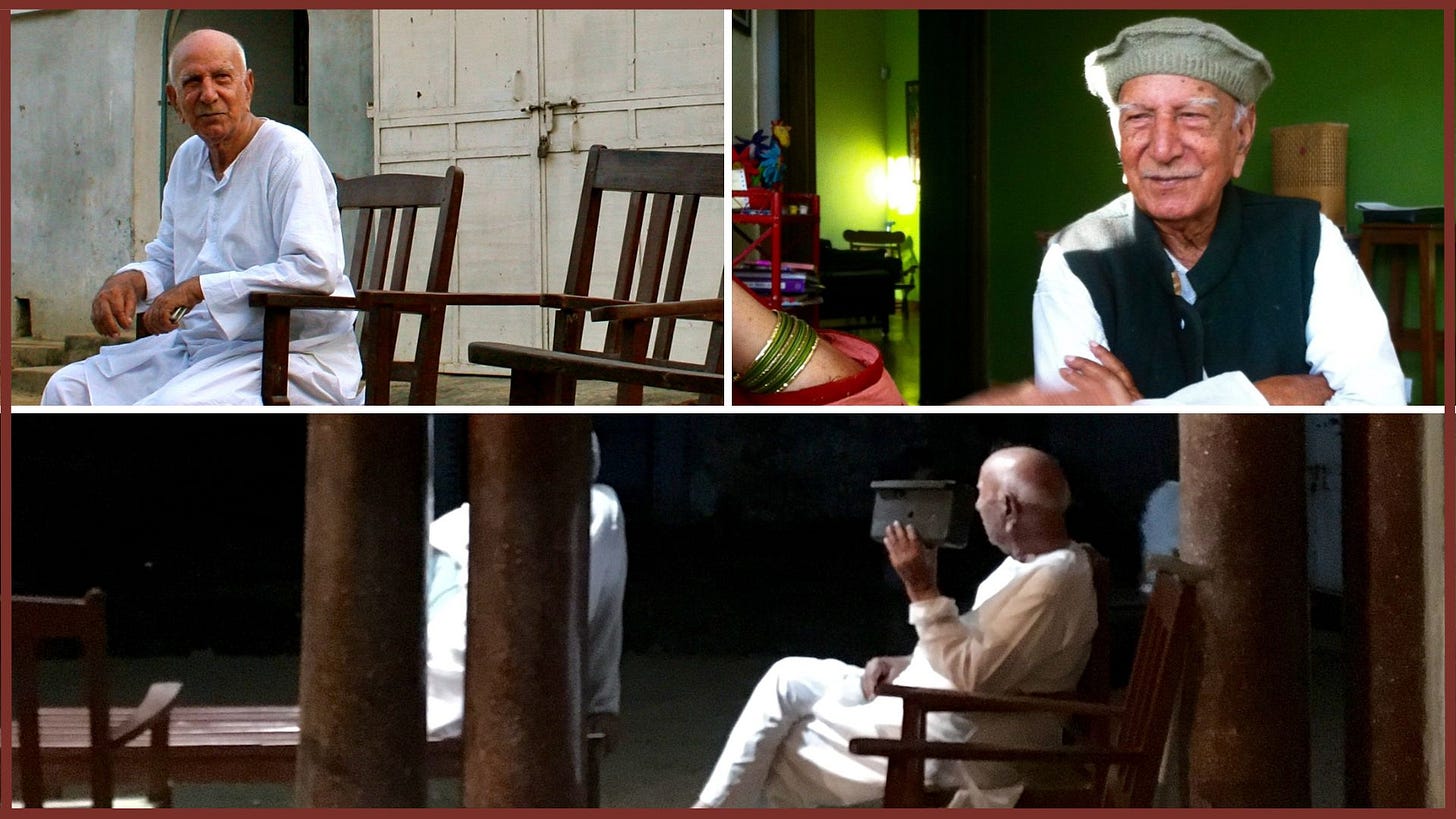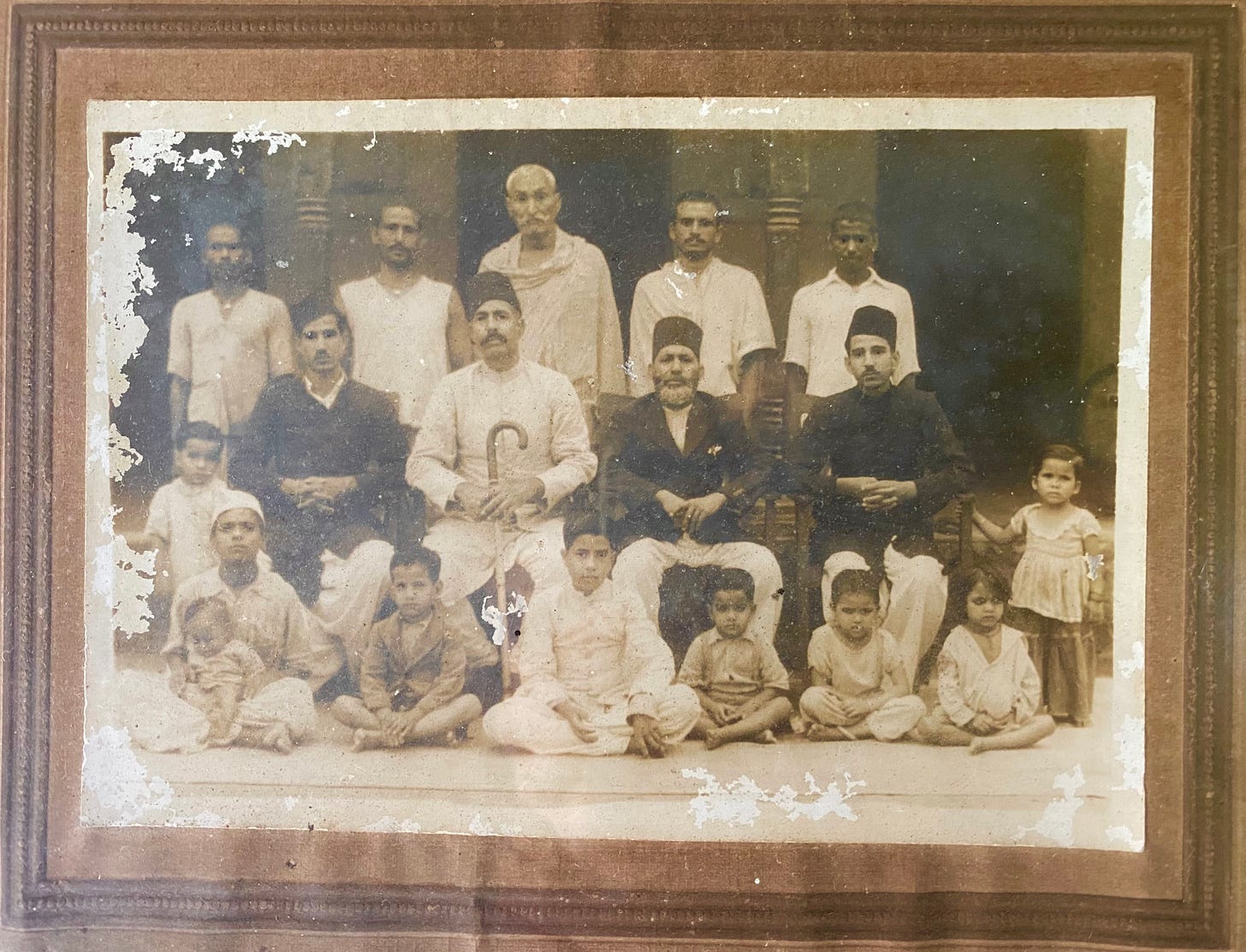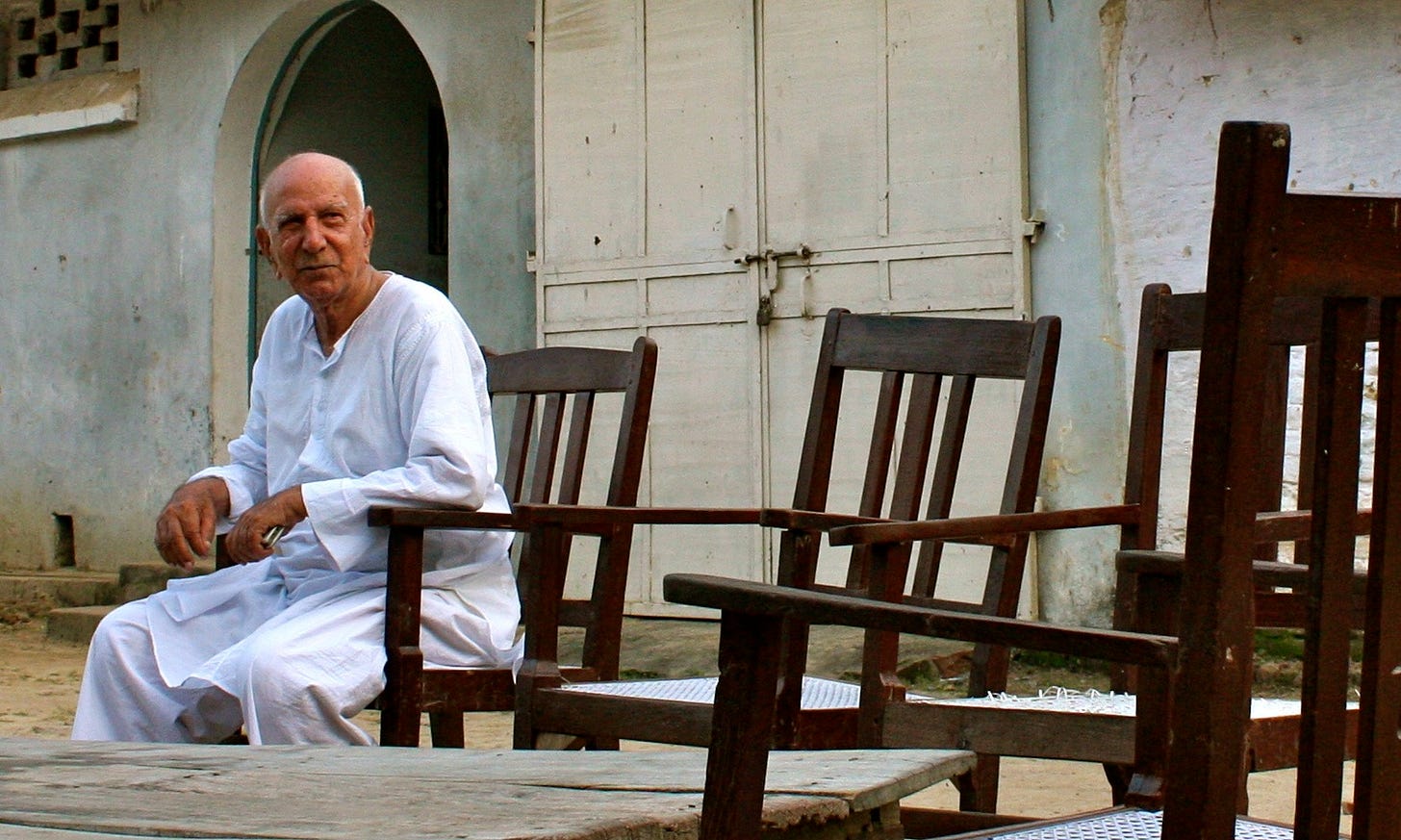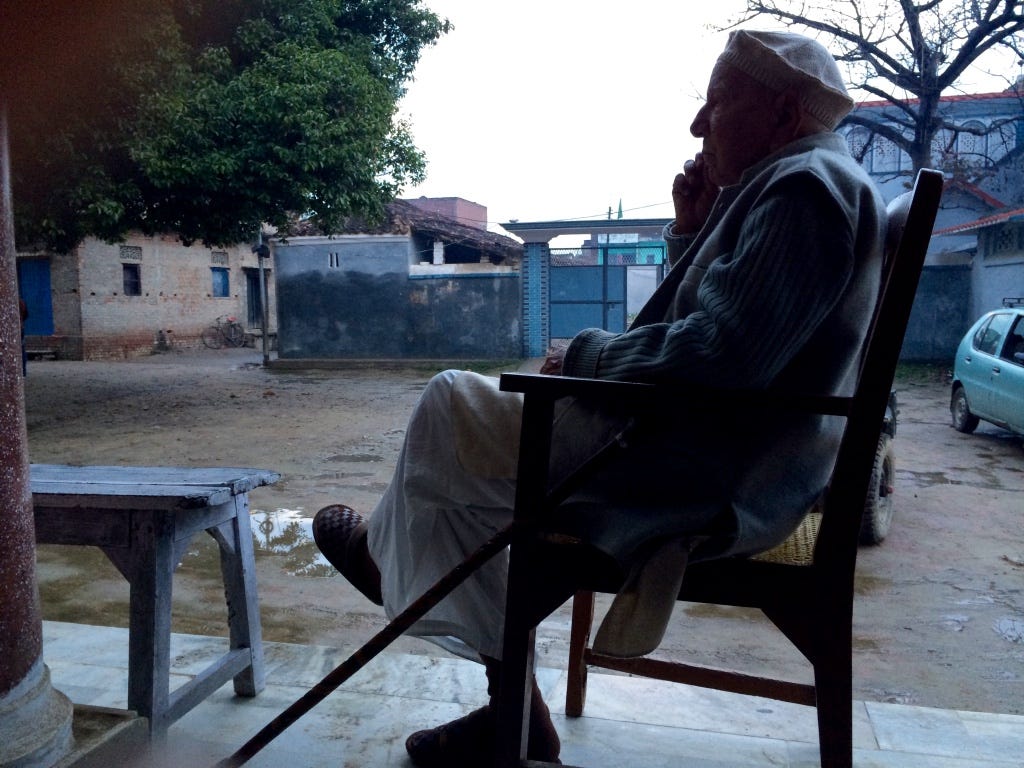An ode from Mirza Sahab ki bahu
Papa lost his deposit as an election candidate. But he has remained a favourite of the people. This was the victory of his life.
It was time for Papa to leave. And now he is gone. Mirza Ashfaq Beg, my father-in-law, was born in the 1920s. He was with us till 8 January, 2023. A week without Papa is just the beginning of the rest of our lives without him.
We have been worrying about the eventuality of his death every winter for the last few years. His adult children have taken turns to be with him in our village home in east Uttar Pradesh to ensure his well-being. Winters have been difficult for his body, beaten down by Parkinson’s syndrome and other ravages of age. But Papa’s strength lay elsewhere. His final years were full of grace for us, helping us transition into roles of responsibility.
After Ammi, my mother-in-law died in the summer of 2015, my friend Aneela had written this line to me: “Ab dekhna to yeh hai ki Ammi kaun banega.” (Which one of you will step into the role of Ammi now, that is what remains to be seen.)
The last thing that I had expected was that the answer to Aneela’s query would be Papa. Despite his own ailments and increasing frailty, Papa’s mellow love and gentle smile became the home that kept his children, grandchildren and extended family grounded.
Ammi had always been the extra-efficient, caring matriarch with her sharp attention focused on everyone’s personalized needs. Papa had been a man of great prestige and respect in the outside world. He always had important visitors. He responded to invitations to deliver speeches and commemorate events. A retired lecturer and leader of the community, we meet Papa’s admirers everywhere we travel in the area. We are recognized as the family of Principal sahab. I am Mirza sahab’s bahu.
I was one of the last significant relationships in Papa’s life. When my husband and I had first contemplated the idea of our inter-faith marriage, we had both worried about the disapproval and discomfort of our parents. We discovered with time that we knew very little about what lay at the core of their love for us. They constantly surprised us with their wise and practical support. Once the decision was made, they became the safe space for our love, offering us the stability and conviction we needed.
In the early years of my marriage, I would watch how everyone else in the home tip-toed tentatively around Papa, trying to anticipate his needs, without him ever needing to express them. Papa’s routine was treated as sacrosanct. I didn’t quite understand other people’s nervousness around him. Meeting him for the first time in his seventies, Papa came across as a quiet, loving and generous father to me. I saw no reason to not meet him where he was. Specially since he was doing me the same favour.
On long drives from our home in Delhi’s suburb to meet his doctors in the city’s hospitals, Papa and I would share stories from our life with each other. The events of Papa’s life mirror the contemporary history of India as we know it.
In August 1947, as India welcomed the dawn of independence from British colonial rule, the nation was simultaneously shaken by the horror and violence of the partition. The same spectrum of celebration and tragic loss played out in this village home, situated in an area that features in the epic novel, Aadha Gaon by Rahi Masoom Raza. Papa’s older brother was a customs officer in Chittagong, a city that became part of east Pakistan and later Bangladesh. Like the majority of North Indian families, no one imagined that borders would soon become impermeable and families would be cleaved, never to come together again.
Inspired by Mahatma Gandhi, Jawahar Lal Nehru and Maulana Azad, Papa immersed himself in helping rebuild communities based on the values of social security, harmony and equity.
“I never believed in the two-nation theory,” he shared with me. “Yet we were destined to bear the brunt of it.”
My husband Afzal often recalls, “I didn’t really have a sense of who my father was till I travelled with him on his campaign trail.” Papa had been the Congress candidate in the legislative elections in Uttar Pradesh in 2002. His reputation and speeches laced with Urdu poetry would draw large crowds, but failed to convert into votes. The real contest that year had been between the sitting MLA, Afzal Ansari and the Bharatiya Janta Party’s Krishnanand Rai who defeated him.
“Mirza sahab is a very good man, he has done so much for us,” people would share openly about my father-in-law. “Par politics mein sharafat ki koi jagah nahi hai,” they would add. (There is no place in politics for honest people.) As a lecturer in the government-run intercollege, Papa had not only taught generations of students, he had also been elected the Gram Pradhan for 40 consecutive years. Everyone had a story of how Mirza sahab had touched their life and they were eager to share it.
Mirza Ashfaq Beg’s final campaign speech had been organized in a maidan opposite the home of the powerful Ansari family in the tehsil. My husband recalls that various people had been nervous about the timing and location of the speech. Not our Papa, it seems. He spoke about progressive values as he always had and concluded his speech with this couplet by Jigar Moradabadi:
Un kaa jo farz hai vo ahl-e-siyasat jaaney
Mera paigaam mohabbat hai jahaan tak pahunche
(Those who are politicians, they know their duties. My message is only of love – may it reach far and wide.)
Papa lost his deposit in that election. But he has remained a favourite of the people who know him. This was the victory of his life. He lived long enough to show us that the beacon of love cannot be dimmed by the restless winds of hate. Times will continue to change, but those who have peace in their heart must not allow themselves to be diminished. This is what I learnt from my father-in-law. This will always remain my guiding light.
(This essay was first published in The Tribune)








Deepest condolences Natasha ji!
So true. People of that era did not need victory, their win was hidden in their heart and their glow shone all around them for us to bask in it when they are there and yearn for it when they are not. Cherish the memories & thanks for sharing.